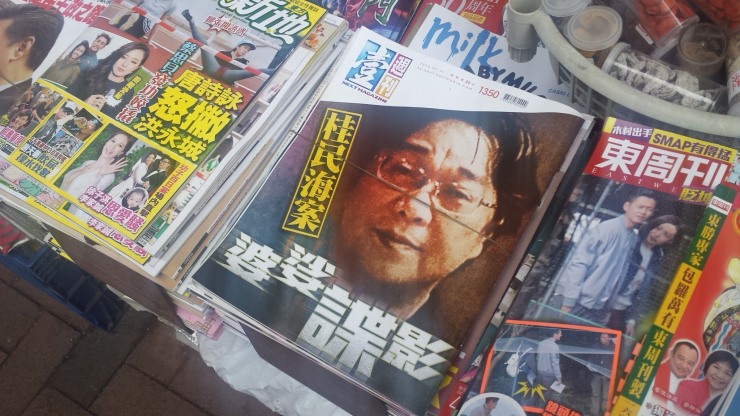Some five years ago my friend Wang Quanzhang – China’s last missing lawyer – came over to my Beijing apartment for a Swedish-style Christmas.
By this time he had learned to tolerate, if not appreciate, the meatballs, as it was his second Christmas at my house. Since then, I’ve been deported from China and banned for ten years under the Espionage Act.

I am unlikely to spend any more Christmases in China. Wang might never be allowed to spend any Christmas anywhere, outside of prison.
Wang disappeared on 5 August 2015. For two and a half years his family, wife Li Wenzu and their young son, and the lawyers Wang had chosen for himself should he ever be detained, have not seen nor heard from him. There’s no trial in sight.
It may strike anyone reading this that his case is simply another victim’s story. Frankly, there are so many that it’s hard to keep track or become engaged.
However, his case represents something far worse, and is a window into the new China envisioned by Xi Jinping and the CCP.
China’s attempts to weaken UN mechanisms put in place to monitor how countries implement or follow basic rules and rights are well documented. What is happening in China now – an unprecedented disappearing of critics, lawyers and human rights defenders, goes far beyond being just another crackdown on civil society.
It is another step towards weakening a core part of the international law system. One of the first major changes under Xi Jinping’s rule was to extend the power of the state even further by legalizing the use of Enforced Disappearances.

For a Party usually known for its abysmal public relations management, it did so with a stroke of marketing “genius”, referring to it as a procedure known as Residential Surveillance at a Designated Location, or RSDL.
At first, its use was limited to central government targeting key rights defenders, claiming they threatened national security. People would be secretly detained and placed in hotel rooms and government-run guesthouses.
Slowly, they started using special custom-built secret prisons. In 2016, the procedure was adopted by local police. Now it’s being used to target critics of any sort, and for any type of “crime”, and not only those accused of threatening national security. Its use, by any measure, is expanding rapidly.
Rights activist Wu Gan and rights lawyer Xie Yang were sentenced the day after Christmas. Wu Gan will spend the next eight years in prison. Both men were disappeared for significant lengths of time before entering the normal judicial process; they were in RSDL.
See also: Peter Dahlin Q&A: The Swedish NGO worker who ‘confessed’ to endangering China’s national security
RSDL allows the state to simply take anyone it wishes, no court approval is needed, and disappear them for up to six months.
The victim’s family does not need be notified of the victims’ whereabouts, they are denied access to legal counsel, and even more preposterously the prosecutor’s office is almost always barred from visiting the secret facility or victim – despite its nominal role to make sure rampant torture is not practiced.

In fact, despite knowing many victims of RSDL myself, I have never heard of someone having had such a visit, and I myself certainly never met anyone from the Prosecutor’s office during my brief stay in RSDL.
In China, exceptions quickly become norms. The exceptions allowing all this have quickly become the norm. With these “exceptions”, RSDL becomes enforced disappearance.
Enforced disappearances is not only a crime in international law, but a most severe one. It is even prohibited in war-time. If used systematically, or in a widespread manner, it qualifies as a crime against humanity.
The West’s tepid response to enforced disappearances, even of their own citizens, who have been kidnapped outside of mainland China, such as British citizen Lee Bo in Hong Kong and Swedish citizen Gui Minhai in Thailand, only encourages China to keep expanding its use. Why not, when there are no consequences.
My only hope, or wish, for this Christmas season is that the further exposure of RSDL, through the first ever book on the subject, The People’s Republic of the Disappeared, edited by my former coworker Michael Caster, will help shed light on what is going on in China.
This should make the West realize that China’s legalization of what may constitute a crime against humanity is a blow to the whole UN system, and a threat to the West itself, and the rules-based system it advocates.

Without a response, how long will it be before Cambodia, Laos, Vietnam and other countries in the Asia-Pacific, all with some history of using Enforced Disappearance themselves, realize the effectiveness of the system in silencing critics, and move to legalize their own versions?
Two years ago, I was detained right after Christmas and held in RSDL before being deported. While I was lucky to be able to spend this Christmas a free man and in the company of family and friends, it is yet another Christmas Wang has spent in a prison somewhere.
For the other victims of RSDL who remain missing, they likely spent this last Christmas staring into the grey-blueish suicide-padded walls of their cells, or for those who have been released no doubt they are still forced to deal with the mental anguish from torture or of having been disappeared in the first place.
It’s hard to say what 2018 has in store for Wang. His case is testament to the breakdown of any rule of law in China. Despite holding all the cards, China does not have the courage to try him in a court of law. He will, for now and who knows for how long, simply be disappeared.
